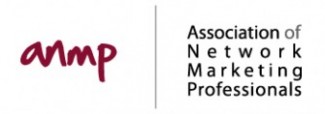By Len Clements © 2008
As the annual convention for the Distributor Rights Association (www.mlm-dra.com) and the Multilevel Marketing International Association’s (www.mlmia.org) first Distributor Conference fast approach, it got me thinking about all the ways that MLM companies design their written policies (and unwritten tactics) to protect their own interest. After all, the Distributor Agreement we all signed represents what the distributor agrees to do. Distributors never ask the company to sign a company agreement. So, naturally, the regulations and policies described in these agreements are pretty one sided in favor of the company.
Fortunately, most MLM companies don’t abuse this power, and they show great discretion and some latitude in applying their policies. They recognize that their distributor force is their lifeblood, and they try not to disenfranchise and discourage them.
Unfortunately, some don’t get it. Product return policies, and more importantly practices, are one area where the company’s true attitude towards their distributors are exposed. No company, in any industry, likes to give back money. But in many cases that return can eventually be profitable. Good will, trust, positive image and reputation are created by making people happy. Lack of a return can result in a far greater cost. One famous (now infamous) MLM company refused the return of product to about 20 people, who all filed complaints with the state AG. Those complains triggered an investigation of the company resulting in its eventual closure and a criminal indictment against the owner. The total amount of refunds requested by these 20 people was $8,000. It was probably the costliest eight grand an MLM company ever saved.
Here are a few ways some companies can getcha’ when you try to return product.
1) Most company policies state that the products can be returned if they are in the current product line. So every 30-60 days they make small, token changes to the formulations making most of the inventory in circulation “outdated” and thus ineligible for return.
2) The company recommends that the product be opened and inspected, cleaned, or loaned out, and then refuses to except it back because it is no longer in “resalable condition.” A couple major water/air purification companies used to do this. They would recommend that the water filter units be opened and “flushed” before attempting to sell them, and/or they trained their reps to use the very effective “puppy dog” marketing approach (where you lend the unit to a prospect for a week, they get attached to it and buy it rather than have you take it back). Of course, once the unit is used in this manner it becomes, well, used. And you can’t return it.
3) They accept returns within a short period of time, say 15-30 days, then stonewall the process until it’s beyond the return period. Either they’d claim the RA number wasn’t valid, they never received your written request, you sent the products back to the wrong address, you call to get an RA number and you’re put on hold until you give up, your call is never retuned, etc..
4) By returning your entire inventory your distributorship is automatically terminated and you may never reinstate it. Of course, most people who return everything are probably quitting anyway, but not always. And even if they are the fear of never being allowed back can be dissuasive (fear of loss is a very powerful motivator).
5) The company applies the ol’ “70% rule.” That is, they state in the P&Ps, and many times right on the order form, that “70% of all previously purchased inventory must be resold or consumed” before another order can be placed. Naturally, the distributor orders anyway regardless of how much inventory is still remaining. Then when you try to return your inventory the company says, “But wait… you agreed not to place any orders unless at least 70% of your past orders were gone, so we’re only accepting 30% of your inventory back” (which may still be subject to other discounts as described below). If you explain that you actually still have most of your inventory, they will counter by claiming you then violated policy by continuing to purchase more.
6) Here’s the most common tactic (the other five are, fortunately, not common practices): In virtually every distributor agreement it says that the products can be returned less a 10% restocking (admin, handling, etc.) fee, and “less any commissions paid.” The distributor usually assumes this means less any commissions paid to him or her – and many times that is what it means. But sometimes it means less the commissions already paid to your upline on those products! So if the plan pays, let’s say 50%, then you are really going to get a 40% refund (50% commissions paid plus 10% restocking fee) not a 90% refund. The phrase “less commissions paid” is rarely clarified as to which method will actually be used.
7) Then there’s this classic – which has only happened once, to my knowledge. And this is absolutely a true story (that will be hard to believe).
The CEO of an MLM company noticed that quite a few bottles of their weight loss capsules were being returned only partially used. So he sent a notice out to all distributors that since the entire 30 day supply of the product had to be used before the results could be fairly judged, the company was no longer accepting returns of this products… unless the bottle was returned empty!
No need for the DRA’s assistance on this one. Most distributors found a way around this policy all on their very own.










